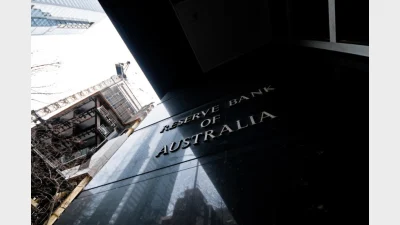RBA expected to hold rates, steering clear of election turmoil



While the RBA has made moves during past election campaign periods, it typically treads carefully to avoid stirring political waters.
As the Reserve Bank prepares to announce its rate decision today, some experts are urging it to “stay out of the spotlight”, saying that a rate cut could trigger intense political scrutiny, especially with the debut of the new Monetary Policy Board.
Scott Solomon, co-portfolio manager of T. Rowe Price’s Dynamic Global Bond Strategy, believes consecutive rate cuts are off the table, with recent messaging all but ruling out the possibility.
While recent data has been weaker, Solomon said that employment numbers can be volatile, adding that with the upcoming elections, “we feel it wise to remain out of the spotlight”.
His key focus is whether governor Michele Bullock leaves the door open for a May cut.
“We expect her to remain balanced but not completely eliminate the possibility while keeping the hurdle high,” Solomon said.
HSBC’s Paul Bloxham agreed, saying that the RBA’s decision to cut in February and its subsequent guidance has taken it largely out of the economic conversation as the election unfolds.
He said that while the unemployment rate and trimmed mean inflation measures have printed in line with the RBA’s forecasts, HSBC expects “the RBA to be firmly on hold on 1 April”.
Even the most optimistic economists, including those at the Commonwealth Bank, are aligned in their prediction – the RBA will leave the cash rate unchanged.
“We do, however, think the flow of recent data will see the RBA deliver a more dovish message, particularly amid heightened geopolitical and policy uncertainty,” they said in a recent market note.
Westpac’s Luci Ellis also declared the big four bank is “confident” that the RBA will keep rates on hold on Tuesday.
Ellis said while the bank still expects a rate cut in May, “back-to-back cuts in February and April were never on the table”.
“The RBA was too hawkish in its rhetoric last month for that, and the board made clear that last month’s cut did not foreshadow more. Cutting again at the April meeting would therefore be damaging to its credibility,” the chief economist said.
The RBA made its first rate cut in four years in February, with AMP’s Shane Oliver telling Super Review that, despite Bullock’s comments to the contrary, politics likely played a role in the decision.
By cutting rates in February, the RBA dodged the political controversy of lowering rates during an election campaign, Oliver said at the time, adding that it also wanted to avoid perceptions that the government stacked the new interest rate-setting board to drive an April cut.
The politicisation of the RBA has been a hot topic for some time, with the passage of legislation introducing a two-board system further fuelling concerns last year.
The Coalition was unanimously opposed to the reform, while several economists, Oliver included, questioned its viability. Nevertheless, Labor, with support from the Greens, got its way, and the two-board system was enacted.
Given this backdrop, the prevailing view in February was that implementing a rate cut in April would be politically unwise for both the RBA and Labor, especially with the election looming.
Speaking to Super Review on Monday, Oliver said that while he sees merit for a cut based on recent inflation data and the broader economic situation, he believes the RBA will remain cautious and wait until May before moving again.
“I think there is reason to cut tomorrow – inflation is falling, the labour market may not be as tight as the RBA thinks it is and Trump’s trade war threatens Australian economic growth,” he said.
“But I think the RBA will remain more cautious and wait till May before moving again.
“The election is an added reason for the RBA not to do anything as – though it won’t openly say so – it prefers to keep a low profile in election campaigns unless it really feels the need to move.”
For most of his peers, April remains off the table, with economists saying that, aside from economic factors, the upcoming federal election suggests the RBA is likely done easing for now.
Recommended for you
The RBA’s new monetary policy board has delivered its first rate decision.
The FSU has branded AMP’s confirmation that it will not use surveillance and monitoring on employees in their homes a “win” for the union.
While Australia’s disinflation process remains on track, market experts see the RBA keeping rates unchanged at next week’s meeting.
In a budget that left economists scratching their heads, the government made a firm commitment to the welfare of two very important Australians: Xing Qiu and Yi Lan, Adelaide Zoo’s resident giant pandas.












